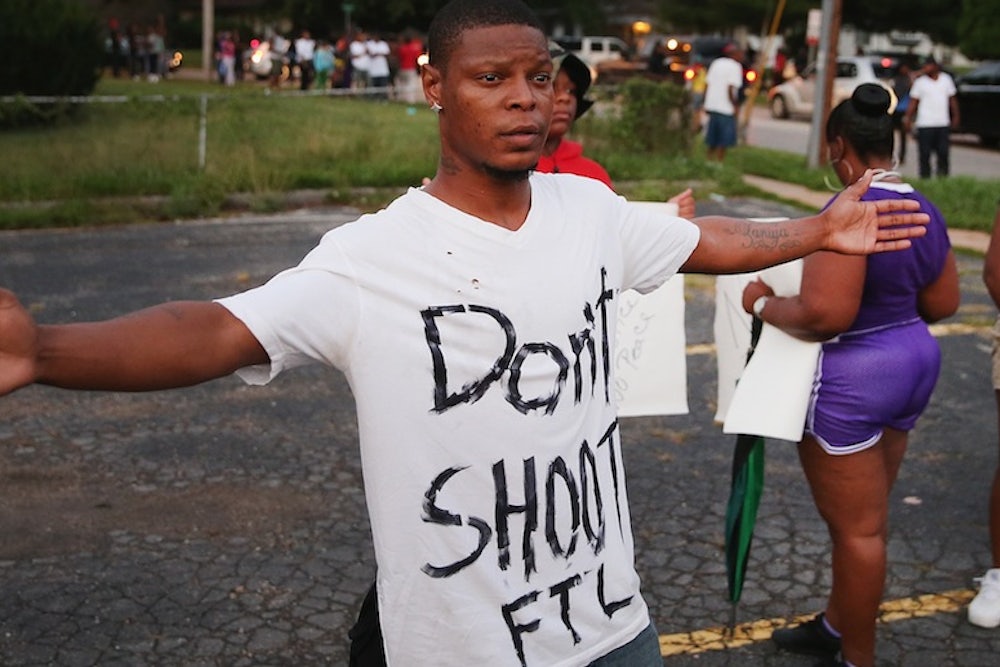There are two very different accounts of what prompted a Ferguson, Missouri police officer to shoot and kill Michael Brown on Saturday. The unnamed police officer who shot the 18-year-old claims he was “physically assaulted.” Witnesses said Brown had his hands in the air to show he was unarmed, and the officer fired from 35 feet away.
Before Brown, there was 16-year-old Kimani Gray, 19-year-old Kendrec McDade, and countless other unarmed African Americans killed by police gunfire. We don’t need to know the outcome of the FBI’s investigation and the Department of Justice’s separate “fulsome review” into civil rights violations to recognize the racism in our justice system.
But racial bias also factors into officers’ split-second decision to shoot a suspect.
Social science research shows that, in video simulations, people are more likely to shoot black men. The participants—often undergraduate students, both black and white—play a simulation where they press “shoot” if they think the white or black suspect holds a gun. Consistently, psychologists have found the students more likely to shoot the unarmed black person over an unarmed white person.
For example, a study published in 2002 from the University of Colorado at Boulder and University of Chicago found that white undergraduates had higher error rates when it came to unarmed African American suspects (1.45 per 20 trials compared to 1.23 for unarmed white suspects).

Police officers who play the simulations have similar results. In a 2005 study from Florida State University researchers, a mostly white, mostly male group of officers in Florida were statistically more likely to let armed white suspects slip while shooting unarmed black suspects instead.
Police in that study shot fewer unarmed suspects than the undergraduates did, a difference attributable to professional training. The more complicated and demanding the training, the researchers found, the more practice officers have in ignoring irrelevant information—including stereotypes. According to a comprehensive comparison of police vs. civilian shooting rates published in the Journal of Personality and Social Psychology, training makes an even clearer difference. Though police officers took longer to decide whether to shoot if the person was black, that analysis found trained officers weren't influenced by race when it actually came to pulling the trigger.
We don’t know how this translates in real-world situations. Split-second decision making is a lot more complicated outside the lab, where there are more distractions and the situation is actually life-threatening. Even though police do incorporate quick-decision training with shooting targets at academy training, they still occasionally kill an unarmed person in real life. Michael Brown was just the latest one.
